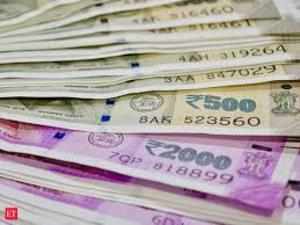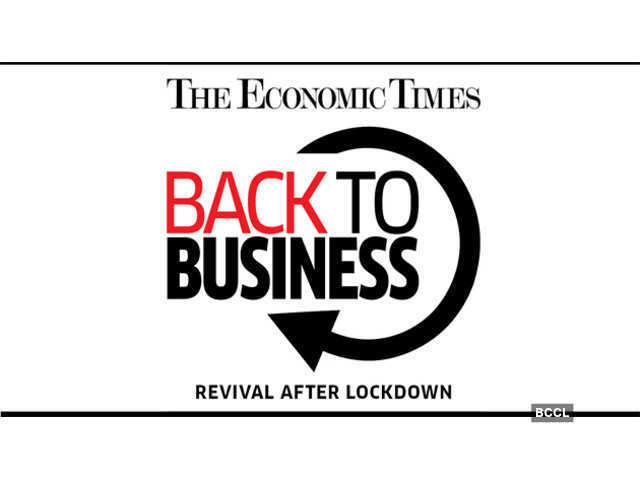
Cash assistance should be provided to a much larger extent than announced by GoI so far, and to both men and women.

COVID-19 CASES
WorldIndiaConfirmed18,985Deaths603Confirmed2,472,259Deaths169,986By Pranab Bardhan
The nationwide lockdown from March 25 — that descended suddenly, with no preparation, no consultation with state governments, little consideration of the immediate hardships for the poor — not to mention of the police ‘dandabaji’ in its enforcement — is clearly having a severe economic impact. Job and income losses have been staggering.
There are no good estimates, but millions have been affected, the majority of whom live a daily wager’s existence, and cannot afford remote working from home, social distancing or frequent hand-washing with soap.
* Immediate Relief Measures for the Poor: At a time when the spectre of hunger is stalking the land, one has to mobilise a network of community kitchens throughout the country (currently, these number more in south India than in the north), administered by local civic bodies and voluntary organisations. For this purpose, the harsh restrictions of the Foreign Contribution (Regulatory) Act (FCRA), 2010, should be relaxed. (These restrictions are, in any case, arbitrary, considering all political parties are exempt from this Act, even retrospectively.)
Cash assistance should be provided to a much larger extent than announced by GoI so far, and to both men and women. Also, universal public distribution of foodgrains to whoever needs food. Overfull Food Corporation of India (FCI) warehouses should be relieved, even before the rabi crop arrives. Not having a ration or Aadhar card should not be a barrier. Now is not the time to worry about undue ‘leakage’ or ‘inclusion error’.

All marketing channels for farm produce — including direct farmer-to-buyer sales – should be opened up, going beyond the existing cartelised mandi system. Along with restarting the Mahatma Gandhi Rural Employment Guarantee Act (MNREGA) scheme keeping social distancing norms intact in the rural areas — where the problems of delayed wage payment and unmet demand for work in some areas need to be resolved — an urban employment guarantee scheme on similar lines should be started urgently involving public works and civic programs.
This can employ lakhs of workers who are still stranded, other workers in services and retail trade who find themselves suddenly jobless, plus the able-bodied among the world’s largest number of under-trial prisoners.
There should be debt moratorium for, and intensive infusion of, credit to all financially fragile micro and small businesses. All major employers should be actively discouraged from laying off their workers (including those on contract), and instead, a significant wage subsidy for all workers on their payroll should be offered, using Aadhar card identification to avoid fake payrolls.
* Turning Some Relief Measures into More Fundamental Changes: The current pandemic points attention to the woeful inadequacies of the GoI’s flagship Ayushman Bharat program, or any other subsidised, primarily private insurance system.
One needs a universal health care system with a much larger role of the public health system, and at least a trebling of the current pitifully low government health spending-to-GDP ratio. (Even Covid-19-testing in private clinics now has now become unaffordable for a large number of people, who may not be extremely poor, with its obvious effects on infection-spread). We should take the opportunity of the crisis to carry out a complete overhaul of our public health system in the medium term.
Similarly, the cash assistance program should be broadened and systematised into an unconditional universal basic income (UBI) supplement that can provide economic security as a citizen’s fundamental right. The Pradhan Mantri Kisan Samman Nidhi (PM-KISAN) scheme has been a small step in that direction. But it excludes vast numbers of landless labourers and non-farmers, and the amount dispensed is too small.
* How to Get the Resources to Pay Such a Large Bill: All this mitigation is surely going to cost a lot of money. Right now, over the next six months or so, fiscal rectitude cannot be India’s priority. Along with public borrowing from domestic and foreign sources, monetise much of the deficit, if necessary. Inflation is not on the immediate horizon.
Forget about credit-rating agencies. Even their high ratings will not stem the tide of capital outflow. And a fiscal chastity belt at a time of economic collapse and widespread destitution is unlikely to improve our ratings.
In the medium run, we have to worry about our extreme public resource scarcity. Viable schemes of significant taxation of wealth, inheritance, capital gains and property values in a country of extreme wealth inequality exist. These can <potentially> raise nearly 2% of GDP.
It has also been estimated that elimination of central and state subsidies — on power, fertilisers, etc — that largely benefit the better-off, and of a fraction of current tax concessions to companies (‘revenues foregone’ in budget parlance) can <potentially> raise another 7% of GDP. These measures will, of course, be resisted by politically vested interests. But a crisis is the most opportune time to fight such resistance.
The writer is professor emeritus of economics, University of California, Berkeley, US
(Catch all the Business News, Breaking News Events and Latest News Updates on The Economic Times.)
Source: indiatimes.com

